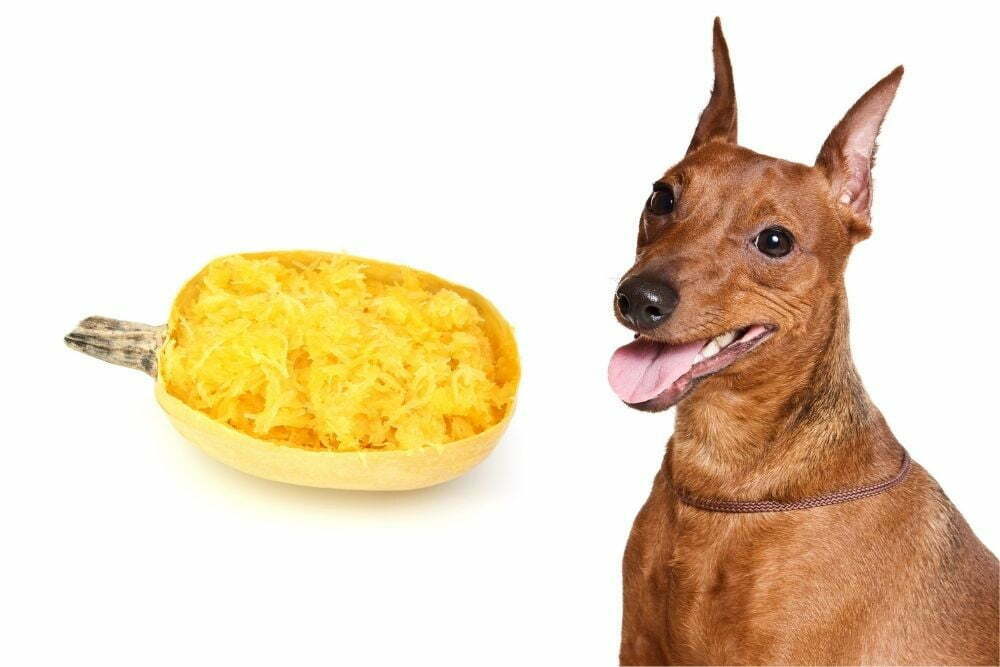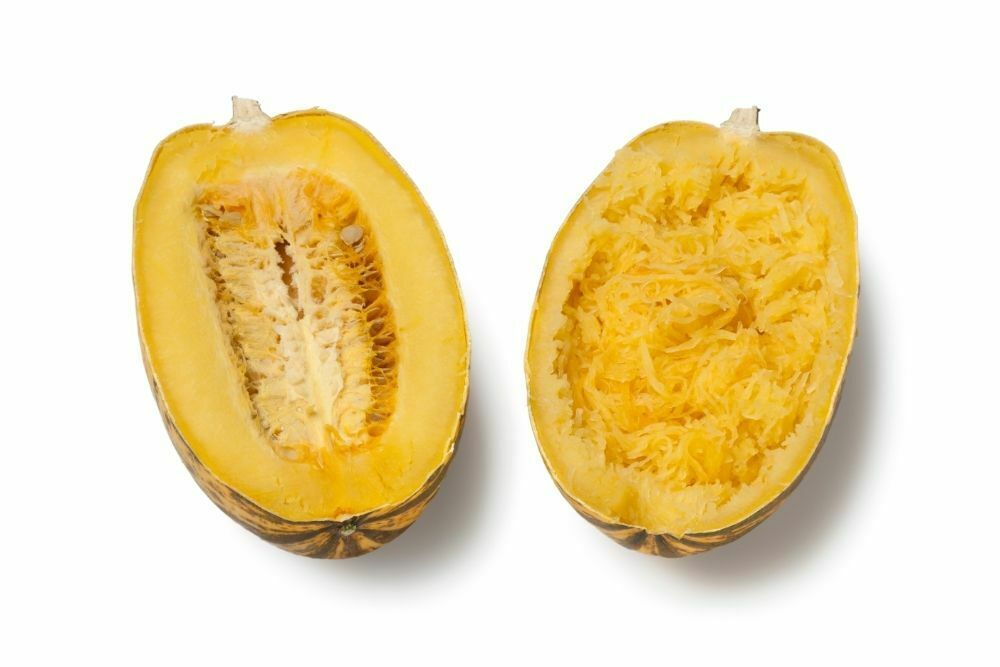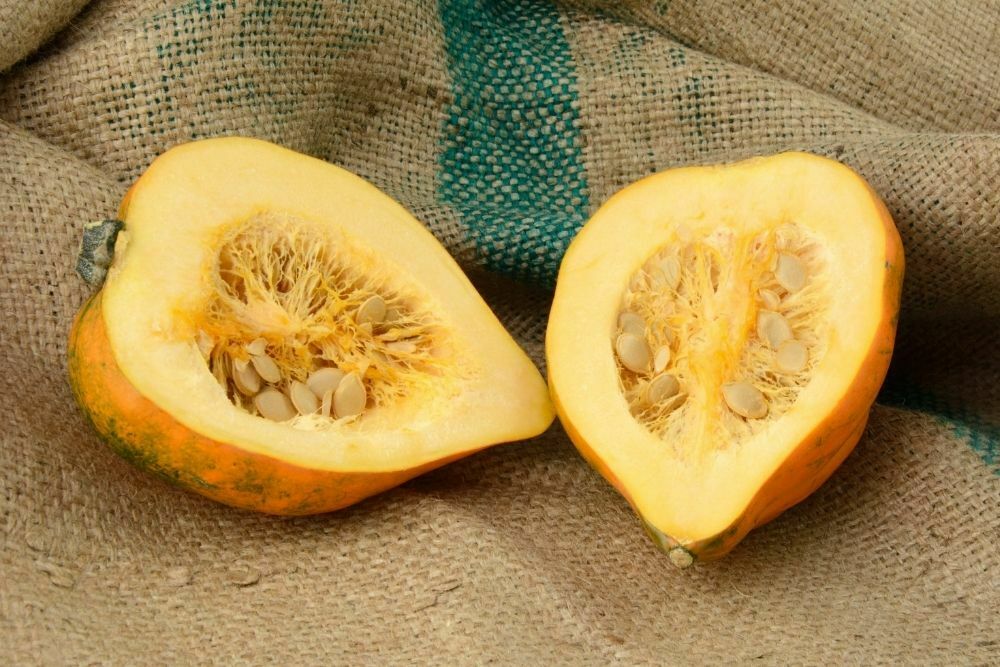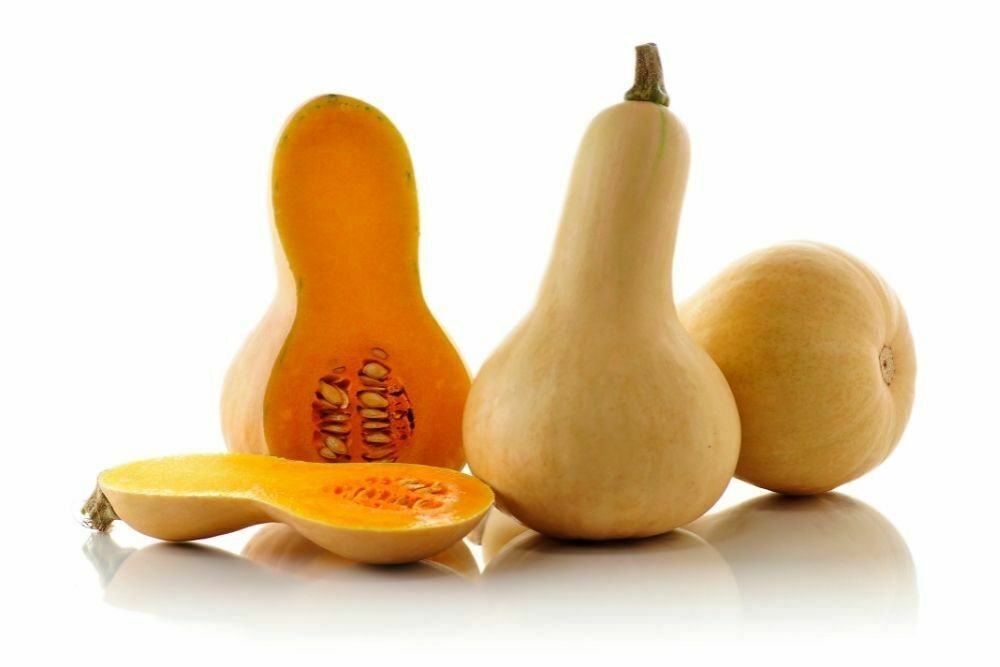Squash itself is a delicious vegetable that is filled with important vitamins, like vitamins A, C, and B6, and it also contains nutrients like folate, potassium, magnesium, fiber, and phosphorus. All of these important vitamins and nutrients make it an excellent food for people to eat, but what about dogs?
Spaghetti squash can go with lots of different meals, which is why you might use it a lot at home, but have you ever wondered if giving some to your dog is alright? This is something that we are going to explore here.

In this article, we will look at whether dogs can eat spaghetti squash, as well as squash in general. We are also going to explore the different benefits of eating squash, so you can find out exactly what it will provide for your dog.
Can Dogs Eat Spaghetti Squash?
Spaghetti squash is healthy food for your dog to eat, and it is rich in vitamin A, vitamin C, fiber, and potassium. These are all vitamins and minerals that will provide support to the health of your dog’s vision, immune system, colon, muscles, and more. So yes, your dog can eat spaghetti squash. Interestingly, it can also help to aid kidney function and decrease your dog’s chances of heart failure.
Can Dogs Eat Squash?
Yes, dogs can eat squash, and it is a food that is full of nutritional benefits, so you can even make it a part of your dog’s regular diet. If your dog were to eat squash regularly, it could help with their immune system, vision, and cardiovascular functions.
Can Dogs Eat All Types Of Squash?
Dogs can eat many different types of squash; interestingly, each type of squash comes with its own benefits for dogs. You can find out more about the benefits of each type of squash below.
Spaghetti Squash

As we have already mentioned, spaghetti squash can help to support your beloved dog’s immune system, vision, colon, muscles, and more.
Acorn Squash

Due to the fact that acorn squash is filled with vitamin A, folate, and vitamin B-6, it can work wonders for a dog’s digestion. As well as this, it can even help to give them a shinier coat.
Butternut Squash

Butternut squash is filled with potassium, which can be beneficial for your dog’s nerves, enzymes, kidneys, and muscles.
What You Need To Know About Squash Before You Give It To Your Dog
Dogs can eat any type of squash, but it is really important that you remove the seeds before you give them to your dog. A few seeds are not likely to hurt your dog, but if they eat too many, it could cause a backup in your dog’s digestive system.
Spaghetti Squash Nutritional Information
Below is the nutritional information that you and your dog can benefit from per 100g of spaghetti squash:
- Energy: 31 kcal
- Protein: 0.64g
- Total Fat: 0.57g
- Carbohydrate (By Difference): 6.91g
- Fiber: 1.5g
- Sugars: 2.76g
- Calcium: 23 mg
- Iron: .31mg
- Potassium: 108mg
- Sodium: 17mg
- Vitamin C: 2.1mg
- Vitamin B-6: .101mg
Health Benefits Of Squash For Dogs
Dogs can also reap the following health benefits from eating squash:
- Skin hydration
- Better digestion
- A healthy, shiny coat
- Stronger muscles, kidneys, and nerves
How To Prepare Squash For Dogs
1. Choose Organic Squash – If you are able to, you should know that it is always beneficial to choose organic produce. Otherwise, the vegetable will be exposed to things like pesticides throughout the farming process. Choosing organic squash will cut down on any pesticide exposure, which is better for your dog. Another bonus to this is that organic farming is more environmentally friendly and sustainable.
2. Always Wash Your Vegetables – Vegetables will travel a long journey before they get to your home, so you might want to consider washing the squash before you prepare it and give it to your dog.
3. Choose Cooked Or Raw – Before you give the squash to your dog, you should first decide if you want to give it to them cooked or raw. Either way, you will need to ensure that you peel and deseed the squash before serving. This is because these are things that can obstruct your dog’s digestive system.
If you choose to serve the squash raw, you should make sure to chop it up into smaller pieces so that it can be easily chewed and swallowed. You could also puree the squash. Dogs can easily get ahead of themselves when they are greeted with something sweet, so you should take extra care to ensure that they don’t choke.
If you decide to cook the squash, the best way to do so is either by steaming it or roasting it. You don’t need to do anything fancy in terms of preparation, as your dog will probably eat it no matter which way you serve it. Steaming or roasting will be enough to get your dog excited for dinnertime.
4. Don’t Season The Squash – Seasoning is a step that you should avoid when you are feeding the squash to your dog, as seasoning is not healthy for dogs, and their stomachs are not able to handle such intense ingredients. Additionally, your dog is more than happy to eat the squash, regardless of whether it has been seasoned, so it is an unnecessary step.
5. Be Careful Not To Overdo It – Squash is filled with vitamins and minerals, but it shouldn’t be the only thing that your dog is eating. Dogs need a well-balanced diet, just like people, and so squash should be an added extra rather than the foundation of their diet.
